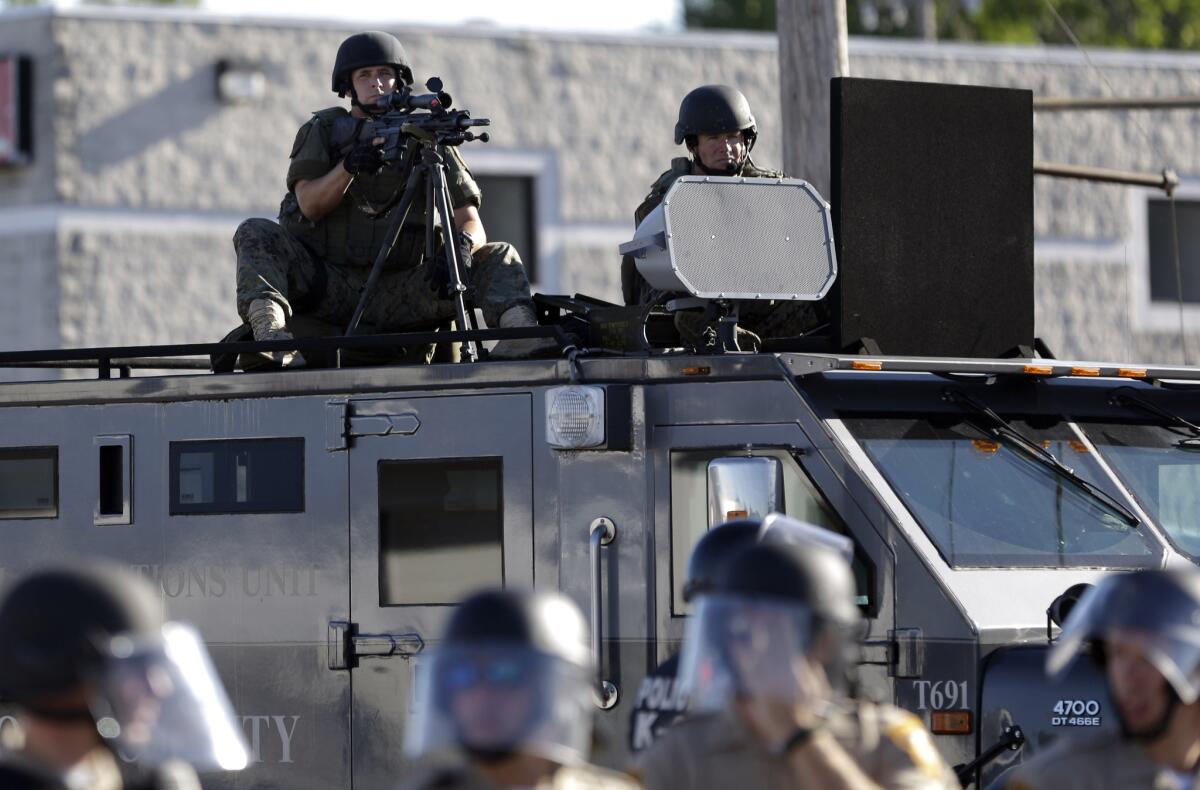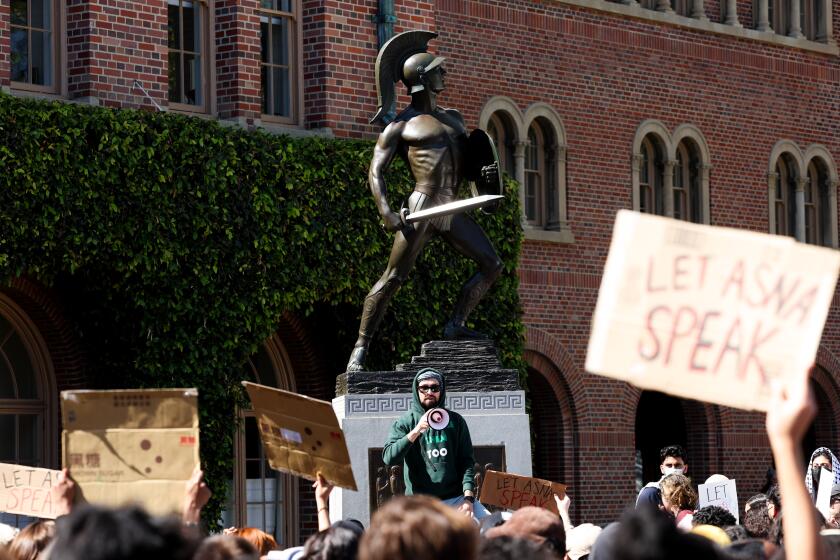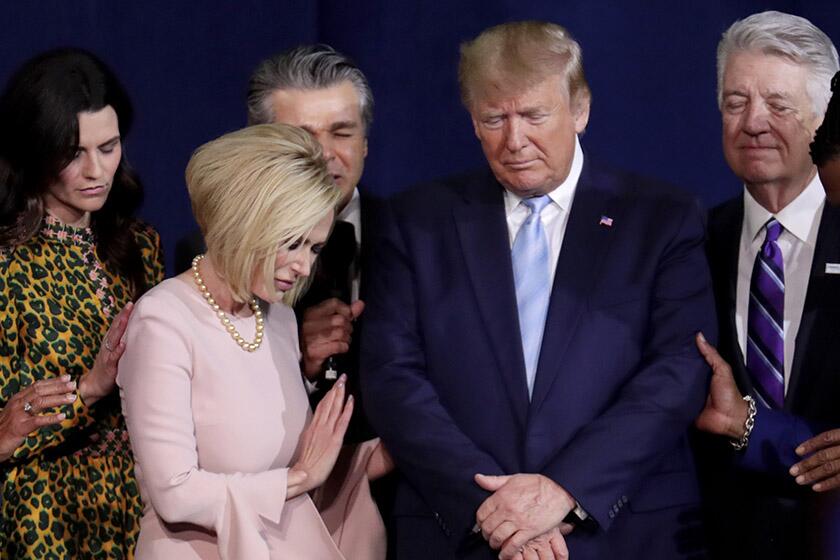Opinion: California bill aims to curb police adoption of military surplus

One of the surprising details that came to light during the recent debate over local police agencies outfitting themselves with surplus military equipment was the remarkable level of freedom police departments enjoyed in requesting weapons, armored personnel carriers, aircraft and other items. In many places, it was done without local public debate over whether communities wanted their police to be that heavily armed. That is changing at the federal level, and is the subject of a bill working its way through the California Legislature in Sacramento.
Some of the stuff local agencies requested and received created a bizarre mismatch of mission and materiel, such as grenade launchers for the Los Angeles Unified School District police, and Saddleback College’s $733,000 mine-resistant armored vehicle (an intimidating parking enforcement vehicle, that).
The American Civil Liberties Union last year sharply condemned the Department of Defense’s 1033 Program, as it is called, as an unnecessary militarization of civilian police agencies. The equipment -- $18 billion worth over five years -- often winds up being used by Special Weapons and Tactics units, which were designed to handle high-risk situations, such as hostage-taking, but have increasingly been used to serve search warrants. And the police showdown with protestors in Ferguson, Mo., last year spotlighted the blurring line between military force and civilian law enforcement.
Earlier this year, President Obama reined in the program after a review pinpointed significant problems with oversight and lack of training for the agencies receiving the material. He appointed a Law Enforcement Equipment Working Group to come up with suggestions for a better framework for the program, including the appropriateness of some of the military material that was being distributed. That report is expected soon.
But he also ordered a change in the process. Police departments can no longer seek the military surplus on their own. Under a directive, now city councils, police commissions or other nonpolice civilian authorities must file the request, ensuring that at least elected representatives of communities will make the call on whether they really want mine-resistant armored vehicles as part of the police department car pool, and grenade launchers in the arsenal.
That was a good change (and one the Times’ editorial board supported). Unfortunately, Obama’s directive is only valid until the next occupier of the Oval office (President Cruz, anyone?) decides that police can again make those requests on their own.
Thus the bill in Sacramento, AB 36. Introduced by Assembly member Nora Campos (D-San Jose), it would require that all requests for federal surplus military material come from local legislative bodies (i.e., city councils and schools boards) after an open and public vote, which would give communities a chance to weigh in on whether they want their police outfitted like a commando unit.
If enacted, and it should be, California communities would be able to decide whether to seek a more militarized police force even if the next president rescinds Obama’s restrictions. An even better move would be for Congress to revisit a bipartisan measure that House Republicans blocked late last year that would have curtailed the Pentagon’s free-distribution program. That measure may have been too restrictive (it barred free transfers of equipment), but at least it was moving in the right direction. And rather than have states do this piecemeal, it’s better to correct that flawed policy at the national level
Follow Scott Martelle on Twitter @smartelle.
More to Read
A cure for the common opinion
Get thought-provoking perspectives with our weekly newsletter.
You may occasionally receive promotional content from the Los Angeles Times.







